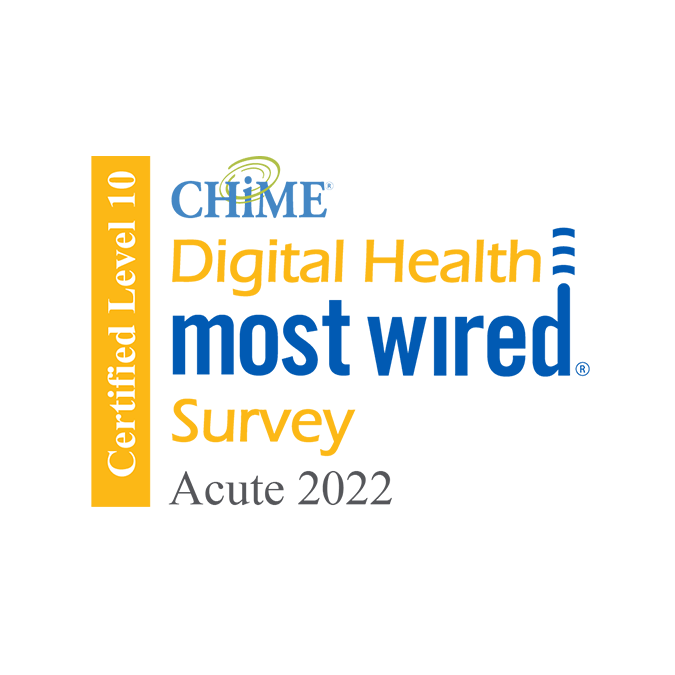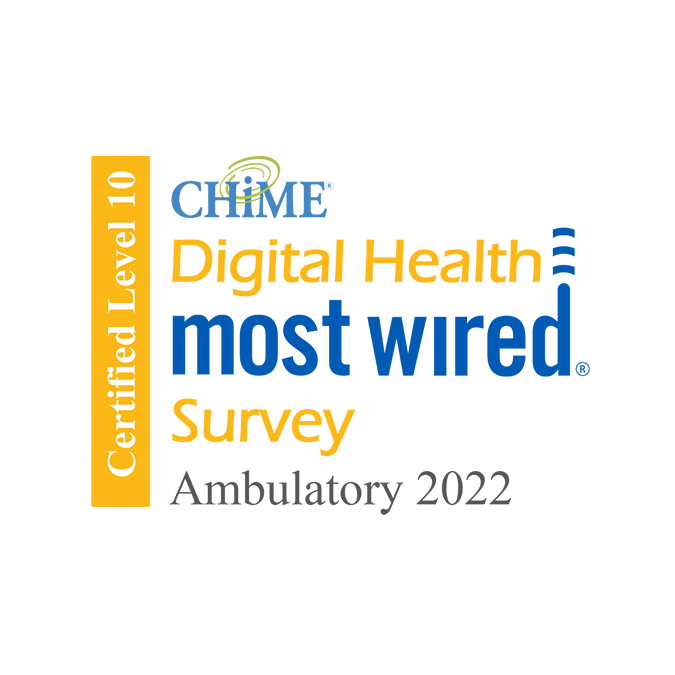Staph Infection
Our team diagnoses and treats any type of staph infection. You receive prompt, specialized care from a compassionate team of experts.
Medically reviewed by Dean Blumberg, M.D. on Sep. 06, 2023.

Receive Experienced Care for Staph Infections
Without treatment, staph infections can become serious. Our infectious disease specialists have decades of knowledge and experience treating every type of staph infection. We work closely with other specialists — from cardiologists to orthopaedic surgeons — to cover all your needs.
What Is a Staphylococcus aureus (Staph) Infection?
Staphylococcus aureus (staph) is a bacterium that lives in the environment. There are 30 known types of Staphylococci, but Staphylococcus aureus causes most infections.
Many healthy people have staph in their noses or on their skin. These bacteria won’t cause health issues as long as they stay outside of your body.
A staph infection happens when the bacteria get into your body — usually through a break in your skin. A staph infection can affect many different parts of your body and can cause other problems, including:
- Bacteremia (infection in your bloodstream)
- Cellulitis (deep skin infection)
- Endocarditis (infection of your heart’s lining)
- Impetigo (skin infection)
- Folliculitis (infected hair follicle)
- Gastroenteritis (digestive tract infection)
- Osteomyelitis (bone or joint infection)
- Pneumonia (lung infection)
- Toxic shock syndrome (TSS), a life-threatening reaction to an infection
Symptoms of a Staph Infection
Symptoms of a staph infection depend on which part of your body has the bacteria in it.
Common Symptoms
The most common signs of a staph infection include:
- Itchy, pimple-like bumps
- Painful bumps on the skin filled with pus
- Red, hot and swollen area of skin
- Sores that break and form a yellow crust
- Cough that doesn’t go away
- Diarrhea
- Fever or chills
- Nausea or vomiting
- Swollen, painful bone or joint
Emergency Symptoms
Some staph infections can quickly become severe and life-threatening. Seek emergency medical care if you experience:
- Chest pain
- Confusion
- Shortness of breath
- Sudden drop in blood pressure
- Sunburn-like rash
Causes of Staph Infections
Staph lives on surfaces and can spread from person to person. People get a staph infection through:
Cuts or Burns
Damaged skin can allow staph to get inside your body.
Breastfeeding
People who breastfeed can get a staph infection through a cracked nipple, causing mastitis (infection of your milk ducts).
Contaminated Food
If staph touches your food, you can get gastroenteritis (food poisoning).
Dental Problems
If you have dental health problems, bacteria can get into your bloodstream through your gums.
Tampon Usage
Wearing a tampon for too long can allow bacteria to collect and get into your body through tiny tears in your vagina.
Risk Factors of Staph Infections
You may be more likely to develop a staph infection if you have:
Skin Conditions and Rashes
Eczema, rashes and skin conditions can break your skin’s barrier, making it easier for bacteria to enter your body.
Chronic Health Conditions
Cancer, diabetes, kidney problems, lung disease and other long-term conditions can raise your risk of getting a staph infection.
Implanted Medical Devices
Bacteria can stick to and grow on metal. You may be more likely to get a staph infection if you have an artificial heart valve, joint or pacemaker.
Intravenous (IV) Drug Use
Using injectable drugs can allow staph and other bacteria into your bloodstream.
Organ Transplant
Medications that prevent organ transplant rejection weaken your immune system, increasing your risk of a staph infection.
Diagnosis and Testing of Staph Infections
Specialists at UC Davis Health have proven expertise in diagnosing all types of infectious diseases. You can be confident that our knowledgeable team will identify the condition quickly, so you receive prompt treatment.
We often diagnose skin infections with a physical exam, but other staph infections require urine or blood tests. You may also need imaging tests if you have symptoms of endocarditis, osteomyelitis or pneumonia.
We check all infections for signs of MRSA (methicillin-resistant Staphylococcus aureus). This type of staph infection is resistant to several antibiotics and can become severe, so a quick and accurate diagnosis is essential.
Treatment for Staph Infections
We create a personalized treatment plan that cures Staphylococcus aureus infections as quickly as possible. We treat mild cases with medications you take at home. More severe cases may require a hospital stay.
Antibiotics
Antibiotics can cure most staph infections. Our team may prescribe an ointment, pill or IV medication, depending on the type of infection.
Drainage
Our team may remove fluid from skin boils using a minor surgical procedure.
Preventing Staph Infections
These steps can help prevent staph infections or keep them from spreading to other people:
Change Tampons Regularly
If you use a tampon, change it at least every three to four hours and use the lowest absorbency you need.
Clean and Cover Wounds
Clean any cuts or skin injuries and use a sterile bandage to cover them.
Don’t Share Personal Items
Don’t share clothing, razors, towels, makeup or other items if you have an infection.
Don’t Touch Sores
If you have any sores from a staph infection, avoid touching them as much as possible.
Take Antibiotics Correctly
If you receive an antibiotic prescription, take it exactly as your provider prescribes it. Finish all the pills, even if you start to feel better.
Wash Hands
Wash your hands after using the bathroom, before eating or serving food and after touching dirty laundry.
MedlinePlus: “Staphylococcal Infections” https://medlineplus.gov/staphylococcalinfections.html
“Staphylococcal Infections,” MedlinePlus, https://medlineplus.gov/staphylococcalinfections.html
Who does it affect?
119KU.S. people have a bloodstream staph infection each year
Nearly
20KPeople die from staph infections
Source: Centers for Disease Control and Prevention (CDC): Deadly Staph Infections Still Threaten the U.S.
Request an Appointment
As Sacramento's No. 1 hospital, you'll benefit from unique advantages in primary care and specialty care. This includes prevention, diagnosis and treatment options from experts in 150 specialties.
Referring Physicians
To refer a patient, you can submit an electronic referral form or call.
800-4-UCDAVIS
Patients
For questions and appointment information
Consumer Resource Center
800-2-UCDAVIS

Ranked among the nation’s best hospitals
A U.S. News & World Report best hospital in cancer, cardiology, heart & vascular surgery, diabetes & endocrinology, ENT, geriatrics, neurology & neurosurgery, obstetrics & gynecology, and pulmonology & lung surgery.

Ranked among the nation’s best children’s hospitals
A U.S. News & World Report best children’s hospital in diabetes & endocrinology, nephrology, and orthopedics*. (*Together with Shriners Children’s)

Ranked Sacramento’s #1 hospital
Ranked Sacramento’s #1 hospital by U.S. News, and high-performing in COPD, colon cancer surgery, diabetes, heart attack, heart failure, hip fracture, hip replacement, kidney failure, leukemia, lymphoma & myeloma, lung cancer surgery, ovarian cancer surgery, pneumonia, prostate cancer surgery, stroke, TAVR, uterine cancer surgery, gastroenterology & GI surgery, and orthopedics.

The nation’s highest nursing honor
UC Davis Medical Center has received Magnet® recognition, the nation’s highest honor for nursing excellence.

“Most Wired” for acute care
UC Davis Health has been recognized as a level 10 out of 10 in the Digital Health “Most Wired” program from the College of Healthcare Information Management Executives (CHIME). The honor recognizes excellence in using technology to improve the delivery of care.

“Most Wired” for ambulatory care
UC Davis Health has been recognized as a level 10 out of 10 in the Digital Health “Most Wired” program from the College of Healthcare Information Management Executives (CHIME). The honor recognizes excellence in using technology to improve the delivery of care.

World-class cancer care
One of ~56 U.S. cancer centers designated “comprehensive” by the National Cancer Institute.

A leader in health care equality
For the 13th consecutive year, UC Davis Medical Center has been recognized as an LGBTQ+ Healthcare Equality Leader by the educational arm of America’s largest civil rights organization.

